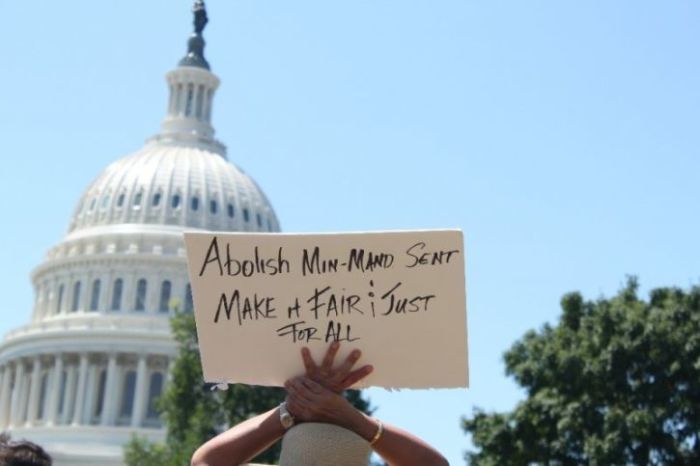Christian bodies divided on bipartisan prison reform bill

A Christian rift over the bipartisan prison reform bill — the First Step Act — is forming, with the National Council of Churches of Christ in the USA announcing its opposition.
NCC, which is an ecumenical body composed of largely liberal bodies, including various mainline Protestant denominations, explained on Friday that despite its support for reforming America's prison system, it finds the First Step Act to be "sorely lacking" on several fronts.
“The United States is home to 5 percent of the world’s population and 25 percent of the world’s prison population. The current mass incarceration crisis was birthed out of racist intentions, and we must be just as intentional about addressing the embedded racism if we are to have any meaningful reform. This bill does not move us any closer to justice on either issue,” it stated.
NCC said that while it is encouraged to see both Republicans and Democrats supporting the end of mass incarceration, it is concerned about proposals to heavily use electronic monitoring.
"We must be proactive in ensuring that electronic surveillance does not morph into another form of mass incarceration. We are concerned that not only the privacy of the person wearing the monitor is violated, but that of their family and others in close proximity is as well," it said.
"Electronic monitoring provisions also shift the cost from the government to the directly impacted person which exacerbate economic disparities rooted in race and class. This and other provisions allow the privatization of certain public functions and feed into and build upon the already burgeoning for-profit prison industry."
Evangelical ministries have, meanwhile, come out in support of the bill. While acknowledging that the bill is not perfect, they view it as a solid first step toward prison reform, which includes reducing the federal recidivism rate.
Notable Christian ministries that are backing it include Prison Fellowship, the Christian Community Development Association, the Faith and Freedom Coalition, the National Association of Evangelicals, the National Hispanic Christian Leadership Conference and the Southern Baptist Convention's Ethics and Religious Liberty Commission.
President Donald Trump announced his support for the evangelical-backed bill, which passed the House earlier in 2018. It is not yet clear whether it will pass the Senate.
Those supporting the 103-page legislation have praised it for pushing forth earned time credit incentives for federal inmates to participate in rehabilitative and vocational training programs, seeking to prepare them for life after prison.
Megachurch pastor Jentezen Franklin of the multi-campus Free Chapel church, wrote in an op-ed in Newsmax on Friday that 80 percent of Americans back the bill, which is rare in this political day and age.
"Also on board with this legislation are 121 former federal prosecutors and senior government law enforcement officials, one former U.S. attorney general, five former U.S. deputy attorneys general, one former FBI director, one former U.S. solicitor general, one former associate U.S. attorney general, two former acting U.S. attorneys general, one former DOJ inspector general, one former U.S. attorneys executive director, 13 former district and appellate judges, along with a number of other U.S. district attorneys," Franklin wrote.
“The overwhelming bipartisan support, combined with endorsement from law enforcement officials and federal prosecutors, make this an absolute no-brainer. The job of the legislative branch of government is to represent the wishes and will of the people they were sent to represent,” the pastor pointed out.
“What we’re asking is not outlandish. We’re simply asking you to represent us and do the right thing now. People’s lives and the future of thousands of Americans, families of incarcerated men and women, are dependent upon our elected officials to get this right. We have assurance the president will sign this bill, so now is the time to get it done.”
Still, others, such as U.S. senator for Arkansas Tom Cotton, warned that there are some big dangers associated with the bill that cannot be ignored, such as cutting the prison time for trafficking heroin and fentanyl.
"What about our opioid crisis suggests that drastically reducing the penalty for trafficking these drugs is a wise idea? I’m sure many of you know someone who has been tragically affected by drug addiction or even overdose and death,” Cotton wrote in an op-ed for The Christian Post.
“Now is not the time to go soft on those who are killing our kids.”




























